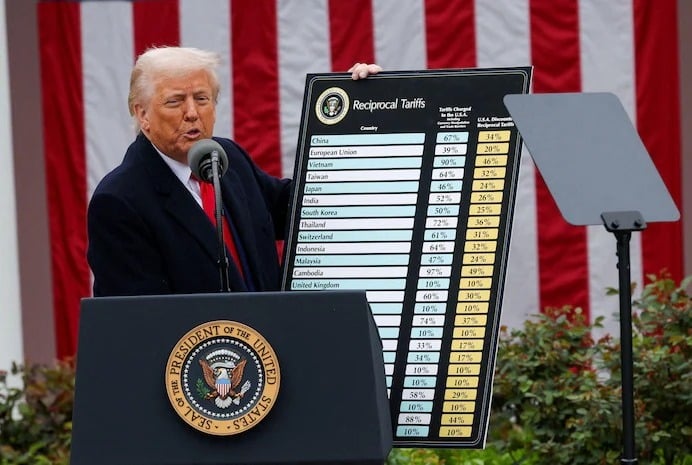
Trump’s Tariffs Temporarily Reinstated After Appeals Court Grants Emergency Stay
The United States Court of Appeals for the Federal Circuit has temporarily reinstated President Donald Trump’s sweeping tariffs by granting an emergency stay, a day after the U.S. Court of International Trade (CIT) ruled that Trump had overstepped his authority.
The appeals court’s stay means that Trump’s controversial “Liberation Day” tariffs — affecting imports from Canada, Mexico, China, and most U.S. trading partners — will remain in effect while the legal battle continues.
Constitutional Questions at Stake
The trade court had stunned the Trump administration on Wednesday by ruling that the Constitution grants Congress — not the President — the authority to impose tariffs. The court specifically found that Trump had improperly invoked the International Emergency Economic Powers Act (IEEPA) to justify the sweeping tariffs, which were partly aimed at pressuring countries over their alleged roles in fentanyl trafficking.
Senior Trump officials were undeterred, signaling their intent to appeal and even explore alternative presidential powers to preserve the tariffs.
Appeals Timeline and Legal Outlook
The Federal Circuit has ordered:
- Plaintiffs to respond by June 5
- Trump administration to respond by June 9
The Liberty Justice Center, representing five small U.S. businesses, said the stay was procedural. Their lead attorney, Jeffrey Schwab, expressed confidence that the court would eventually side with the businesses, citing irreparable harm caused by disrupted supply chains and increased costs.
In a related case, another federal court found Trump had also overstepped his authority by levying reciprocal tariffs under IEEPA. However, that ruling applies only to the toy company that filed the lawsuit.
Trump Responds
Trump lashed out at the judiciary on social media, calling the trade court’s ruling “horrific” and a threat to Presidential power:
“If allowed to stand, this would completely destroy Presidential Power — The Presidency would never be the same! This decision is being hailed all over the World by every Country, other than the United States of America,” he wrote Thursday evening.
He added that he hopes the U.S. Supreme Court will reverse the decision.
Global and Market Reactions
Most U.S. allies offered measured responses:
- The UK called it a domestic matter
- Germany and the EU Commission declined to comment
- Canada’s PM Mark Carney said the ruling aligns with Canada’s longstanding view that Trump’s tariffs are unlawful
Markets reacted with cautious optimism to the initial trade court ruling. However, analysts noted that the stay could lead to prolonged uncertainty, as an appeals process could stretch out for months.
Economic Impact and Business Fallout
According to a Reuters analysis, Trump’s tariffs have already cost U.S. companies over $34 billion in higher costs and lost revenue. Some industry-specific tariffs — including those on steel, aluminum, and autos — were imposed under separate legal authorities and remain unaffected.
Trump’s tariff campaign, which resumed aggressively in April, has pushed the effective U.S. tariff rate up to 15%, compared to just 2% to 3% before his return to office. A recent temporary truce with China reduced some levies until late summer, but that agreement may now hang in the balance.
Oxford Research estimates that had the trade court’s ruling stood, the tariff rate would have dropped to about 6%.
Companies on Edge
Major brands like Diageo, General Motors, and Ford have withdrawn forecasts amid cost uncertainty. Foreign firms including Honda, Campari, Roche, and Novartis are considering relocating or expanding operations in the U.S. to avoid future disruptions.






